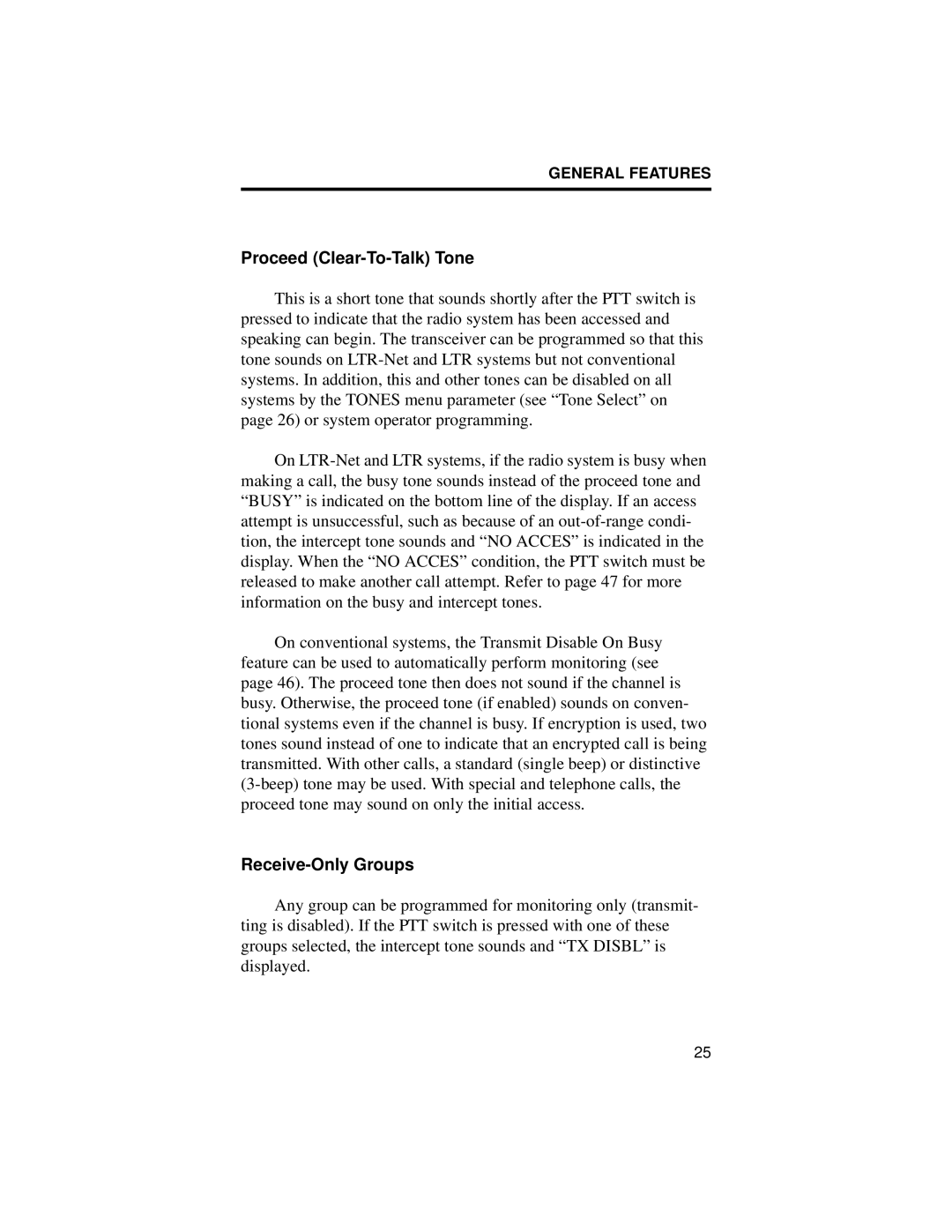GENERAL FEATURES
Proceed (Clear-To-Talk) Tone
This is a short tone that sounds shortly after the PTT switch is pressed to indicate that the radio system has been accessed and speaking can begin. The transceiver can be programmed so that this tone sounds on
On
On conventional systems, the Transmit Disable On Busy feature can be used to automatically perform monitoring (see page 46). The proceed tone then does not sound if the channel is busy. Otherwise, the proceed tone (if enabled) sounds on conven- tional systems even if the channel is busy. If encryption is used, two tones sound instead of one to indicate that an encrypted call is being transmitted. With other calls, a standard (single beep) or distinctive
Receive-Only Groups
Any group can be programmed for monitoring only (transmit- ting is disabled). If the PTT switch is pressed with one of these groups selected, the intercept tone sounds and “TX DISBL” is displayed.
25
